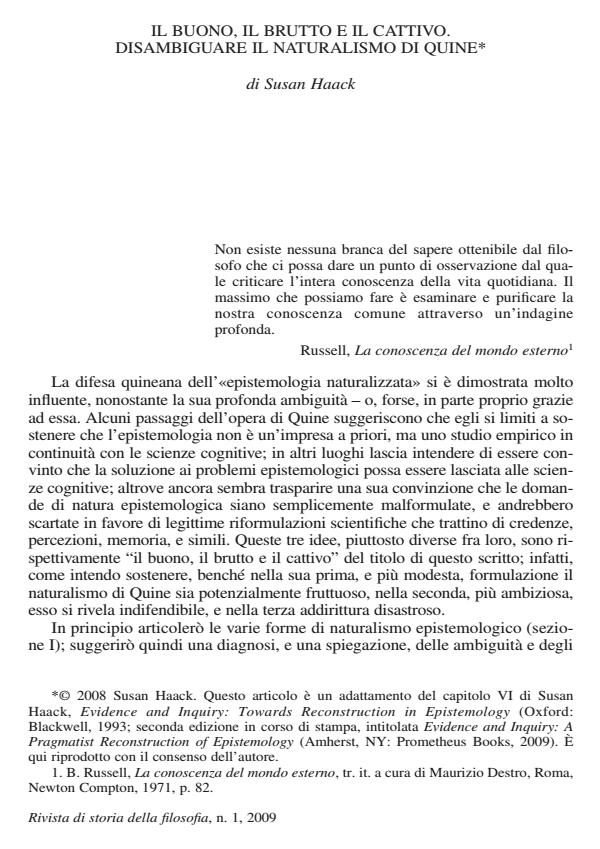Il buono, il brutto e il cattivo. Disambiguare il naturalismo di Quine
Titolo Rivista RIVISTA DI STORIA DELLA FILOSOFIA
Autori/Curatori Susan Haack
Anno di pubblicazione 2009 Fascicolo 2009/1
Lingua Italiano Numero pagine 23 P. 75-97 Dimensione file 610 KB
DOI 10.3280/SF2009-001006
Il DOI è il codice a barre della proprietà intellettuale: per saperne di più
clicca qui
Qui sotto puoi vedere in anteprima la prima pagina di questo articolo.
Se questo articolo ti interessa, lo puoi acquistare (e scaricare in formato pdf) seguendo le facili indicazioni per acquistare il download credit. Acquista Download Credits per scaricare questo Articolo in formato PDF

FrancoAngeli è membro della Publishers International Linking Association, Inc (PILA), associazione indipendente e non profit per facilitare (attraverso i servizi tecnologici implementati da CrossRef.org) l’accesso degli studiosi ai contenuti digitali nelle pubblicazioni professionali e scientifiche.
Il buono, il brutto e il cattivo. Disambiguare il naturalismo di Quine - Quine’s ‘epistemology naturalised’ has been profoundly influential, but it is also highly ambiguous. Quine seems at times to claim only that epistemology is not a purely a priori enterprise but an empirical study, continuous with the sciences of cognition; at others, that epistemological questions can be turned over to the sciences to resolve; and on other occasions, that epistemological questions are misconceived and should be replaced by scientific investigation into cognition. What is argued here is that the first and most modest version of Quine’s epistemological naturalism is potentially fruitful, the second and more ambitious indefensible, and the third and most ambitious not only false but disastrous.
Susan Haack, Il buono, il brutto e il cattivo. Disambiguare il naturalismo di Quine in "RIVISTA DI STORIA DELLA FILOSOFIA" 1/2009, pp 75-97, DOI: 10.3280/SF2009-001006